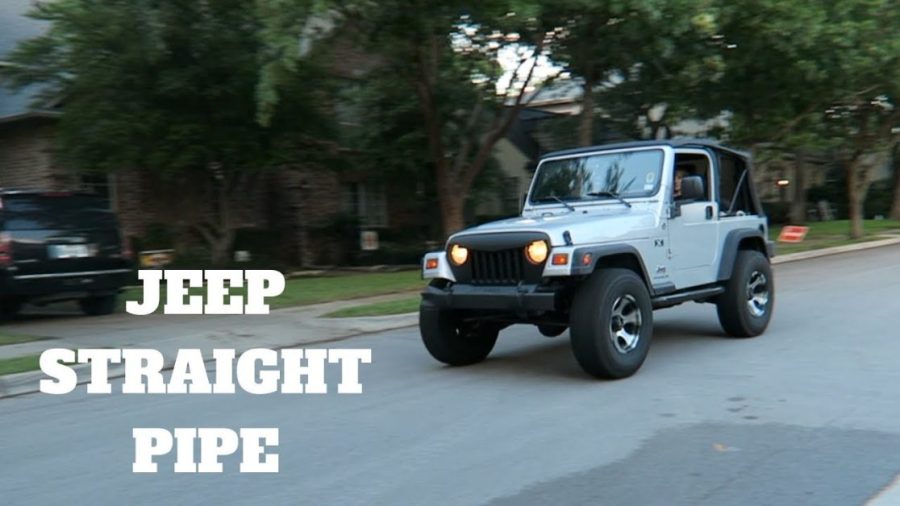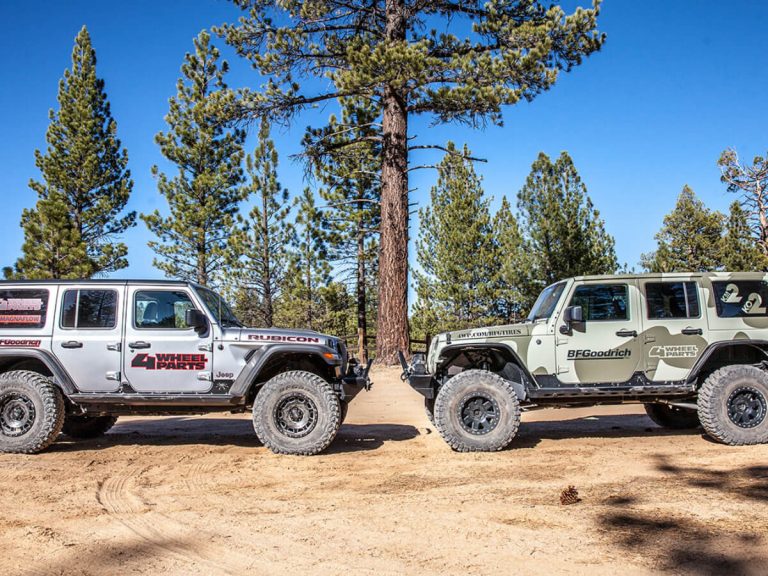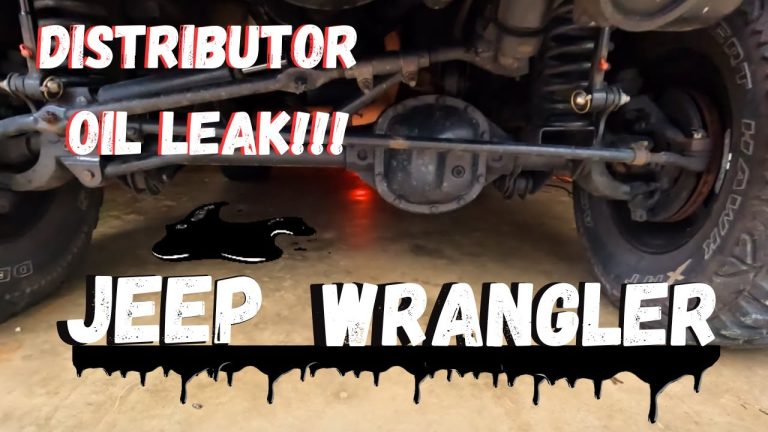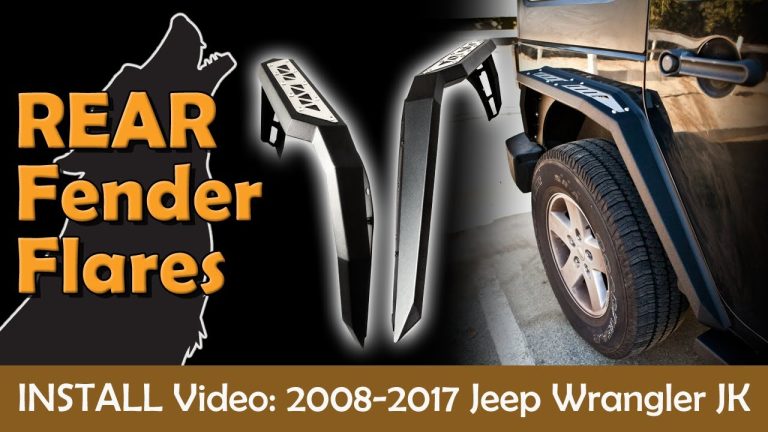How to Straight Pipe a Jeep Wrangler? A Comprehensive Guide

Are you a Jeep Wrangler enthusiast looking to unleash the true power and sound of your beloved vehicle?
While straight piping may seem tempting, let us take you on a journey through the pitfalls and drawbacks of this controversial modification.
Discover why performance mufflers are the preferred choice, providing optimal sound quality and flow.
Brace yourself for an eye-opening adventure into the world of Jeep Wrangler customization.
how to straight pipe a jeep wrangler
To straight pipe a Jeep Wrangler, you would need to remove the muffler and resonator and replace them with a straight exhaust pipe.
However, it is important to note that operating a vehicle on the street without a muffler or catalytic converter is illegal.
Straight pipes have very little backpressure, which can improve flow and potentially enhance performance and fuel mileage.
However, they are loud and may result in subpar sound quality, lacking the deepness and quality bass tone of performance mufflers.
Furthermore, operating a vehicle with straight pipes may violate excessive noise laws and potentially annoy neighbors.
It is recommended to consider aftermarket exhaust systems and mufflers from reputable companies as a legal and superior alternative to straight pipes.
Key Points:
- Straight piping a Jeep Wrangler involves removing the muffler and resonator and replacing them with a straight exhaust pipe.
- Driving a vehicle without a muffler or catalytic converter on the street is illegal.
- Straight pipes have little backpressure, which can improve flow and potentially enhance performance and fuel mileage.
- However, they are loud and may have subpar sound quality compared to performance mufflers.
- Using straight pipes may violate excessive noise laws and annoy neighbors.
- It is recommended to consider aftermarket exhaust systems and mufflers from reputable companies as a legal and superior alternative.
Check this out:
💡 Did You Know?
1. The term “straight piping” refers to the process of replacing the muffler with a straight pipe, allowing exhaust gases to exit the vehicle without any restriction. This modification is often sought after by car enthusiasts due to the potential increase in engine performance and louder exhaust sound.
2. Straight piping a Jeep Wrangler can result in a deeper and more aggressive exhaust note. However, it’s important to note that this modification may not be legal in all areas, as it can exceed noise regulations and emissions standards.
3. One of the potential drawbacks of straight piping a Jeep Wrangler is the increased likelihood of experiencing cabin noise and resonance. This can make long drives less comfortable, particularly on highways.
4. Contrary to popular belief, straight piping a Jeep Wrangler may not significantly increase horsepower or torque output. While it can improve exhaust flow by eliminating restriction, the benefits may vary depending on the specific vehicle and its engine design.
5. If you decide to straight pipe your Jeep Wrangler, it’s recommended to consult with a professional exhaust technician or mechanic, as the process requires proper alignment and placement of pipes to avoid any potential damage to the vehicle or the risk of inhaling harmful exhaust fumes.
1. Legal Implications Of Straight Piping A Jeep Wrangler
When it comes to modifying vehicles, it is important to be aware of the legal limitations. Operating a vehicle on the street without a muffler or catalytic converter is illegal. This means that straight piping a Jeep Wrangler, or any vehicle for that matter, can lead to fines and legal consequences. It’s always crucial to comply with local laws and regulations regarding vehicle modifications.
2. Common Vehicles That Undergo Muffler Deletes Or Straight Pipes
Straight piping or muffler deletes are popular modifications amongst car enthusiasts. Several common vehicles undergo such alterations, including modern muscle and sports cars, trucks, and even SUVs. The desire for a deeper and more aggressive exhaust note often drives owners of these vehicles to remove their factory mufflers or install straight pipes.
- Reasons for the popularity of straight piping or muffler deletes:
- Enhanced exhaust sound
- Increased horsepower
Improved engine performance
Potential drawbacks of straight piping or muffler deletes:
- Loss of backpressure, potentially leading to reduced torque
- Increased noise levels, which may violate local noise regulations
Possible negative impact on fuel efficiency
It is important to note that modifying the exhaust system in this manner may affect the vehicle’s warranty and violate emission regulations. Always check local laws and consult with professionals before making any modifications.
“The deeper growl of a straight-piped exhaust can add an extra layer of excitement to the driving experience.”
3. Benefits Of Straight Pipes: Improved Flow And Potential Performance Gains
One of the primary reasons people choose to straight pipe their vehicles is the belief that it can improve performance. Straight pipes have very little backpressure, allowing for better flow of exhaust gases. This improved flow can potentially result in increased horsepower and torque, as well as improved fuel mileage in some cases. However, it’s important to note that the actual performance gains may vary depending on the vehicle and its specific setup.
4. Drawbacks Of Straight Pipes: Subpar Sound Quality
While straight pipes offer some benefits in terms of performance, they come with their fair share of drawbacks, especially when it comes to sound quality.
Unlike performance mufflers, straight pipes cannot match the sound quality they provide. The lack of proper sound resonance and tuning often results in subpar sound quality. It can lead to unwanted sounds such as “popping” and “crackling”, excessive “raspiness”, and a general lack of deepness and quality bass tone.
5. Poor Sound Quality Examples With Straight Pipes
When opting for a straight pipe exhaust, it is essential to understand that the resulting sound may not be to everyone’s liking. The absence of proper muffling can create a harsh and overwhelming noise experience. It’s worth considering whether the sound produced by straight pipes aligns with personal preferences and the desired driving experience. Comparing the sound of a vehicle with straight pipes to that of a nearby Chevy Camaro, for example, can provide some insight into the potential noise level and character.
6. Consideration For Noise Levels And Neighbors With Straight Pipes
Another important aspect to consider is the impact straight pipes may have on those around you.
- Straight pipe exhaust systems are typically loud, and this can potentially annoy neighbors and other people on the road.
- It’s important to be mindful of others and ensure that the noise produced by the modified Jeep, or any vehicle with straight pipes, remains within reasonable limits.
7. Legal Issues Surrounding Straight Pipes And Excessive Noise
Important information:
Operating a vehicle on the street without a muffler is illegal.
Straight pipes may violate excessive noise laws.
Familiarize oneself with local laws and regulations regarding vehicle modifications and noise levels.
Violating these laws can result in fines, citations, or even impoundment of the vehicle.
Explore alternative options that comply with noise regulations while still achieving the desired sound and performance.
“It’s crucial to familiarize oneself with local laws and regulations regarding vehicle modifications and noise levels.”
8. Alternatives To Straight Pipes: Recommended Aftermarket Exhaust Systems
Rather than straight piping a Jeep Wrangler, there are several recommended aftermarket exhaust systems and mufflers available on the market. These include renowned brands such as Flowmaster, Magnaflow, Borla, Cherry Bomb, and Paradox Performance Mufflers. These companies offer a range of options that combine performance, sound quality, and compliance with legal requirements. Paradox Performance Mufflers, for instance, provides industry-leading sound and flow, thanks to their patented Tuning Fork Technology. Exploring these alternatives can provide a better balance between legality, sound quality, and performance for Jeep Wrangler owners who desire a modified exhaust system.
FAQ
Can you straight pipe your exhaust?
Installing a straight pipe exhaust can indeed be an option for boosting your vehicle’s power and producing a louder sound. However, it is important to consider emissions laws and noise regulations before going ahead with this modification. Straight pipe exhausts are not commonly used in newer cars due to the potential for exceeding emissions limits, which can lead to legal implications.
What do you cut off to straight pipe a car?
To straight pipe a car, you would typically remove the muffler, resonators, and catalytic converters from the exhaust system. By doing so, you eliminate any components that restrict the flow of exhaust gases. However, it is important to note that driving a vehicle without a muffler or catalytic converter on public roads is illegal, as they are essential for noise reduction and emissions control.
Can you put an exhaust on a Jeep Wrangler?
Absolutely! Jeep Wranglers are compatible with a wide range of aftermarket exhaust systems, providing enthusiasts the option to modify their vehicle’s sound and performance. Whether you’re looking for a more aggressive tone or improved horsepower, you can find exhaust systems specifically designed for Jeep Wranglers in various series. By choosing the right system, you can enhance both the auditory experience and the overall performance of your Jeep Wrangler, adding a touch of personalized flair to your off-road adventures.
Can straight piping your car hurt it?
While straight piping may seem appealing to some car enthusiasts seeking a louder and more aggressive sound, it can potentially harm the engine. Contrary to popular belief, it may not always improve engine performance, and in fact, it can reduce low-end torque and overall power. Additionally, by bypassing the catalytic converter, straight piping can increase harmful emissions, thus contributing to air pollution. Overall, it is important to consider the potential negative effects on both engine performance and the environment before opting for straight piping.





